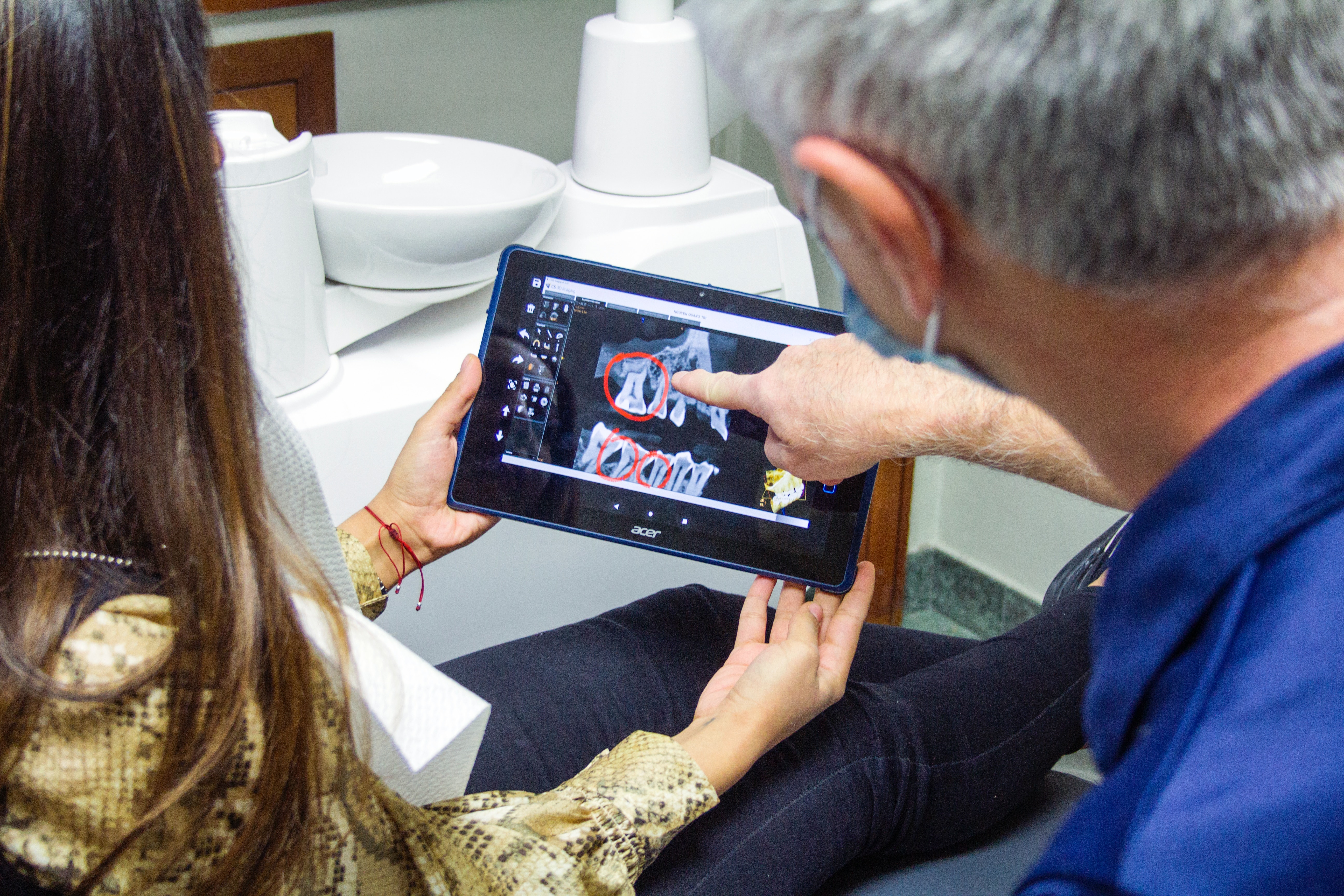
𝐅𝐀𝐌𝐈𝐋𝐘 𝐀𝐍𝐃 𝐂𝐇𝐈𝐋𝐃 𝐃𝐄𝐍𝐓𝐀𝐋 𝐂𝐇𝐄𝐂𝐊-𝐔𝐏 𝐖𝐈𝐓𝐇 𝐀𝐃𝐕𝐀𝐍𝐂𝐄𝐃 𝐃𝐈𝐆𝐈𝐓𝐀𝐋 𝐗-𝐑𝐀𝐘
Receive a comprehensive dental examination of your entire family, including specialized child dental care, at Sparkle Dental Clinic. Our tailored solutions prioritize the long-term oral well-being of both adults and children, ensuring a healthy and confident smile for the whole family A Walkthrough of Your Dental Visit: A regular dental check-up is necessary for several reasons: 1. Early Detection of Issues: It helps in the early detection of dental problems such as cavities, gum disease, and oral cancer, allowing for timely intervention and treatment. 2. Preventive Care: Regular check-ups enable dentists to provide preventive care, including cleanings and fluoride treatments, which can help prevent the development of more serious dental issues. 3. Maintaining Oral Health: Routine check-ups are essential for maintaining good oral health, ensuring that teeth and gums remain healthy and free from any potential problems. 4. Overall Health Connection: Oral health is closely linked to overall health, and regular check-ups can help in identifying other health conditions that may manifest in the mouth, such as diabetes or heart disease. 5. Personalized Treatment: A comprehensive check-up allows the dentist to develop a personalized treatment plan tailored to the specific needs of the patient, promoting optimal oral health and well-being. 6. Patient Education: Check-ups provide an opportunity for patients to receive guidance and education on proper oral hygiene practices, leading to better long-term oral care habits. By undergoing regular comprehensive dental check-ups, individuals can ensure that any potential dental issues are identified and addressed promptly, contributing to their overall health and well-being 【FAQS】 1. How often should I undergo a comprehensive dental check-up with X-rays? Ans American Dental Association and Indian Dental Association recommends having a dental check-up, every six months. However, the frequency may vary depending on your oral health history, risk factors for dental issues, and any ongoing treatments. 2. How can I maintain good oral health between dental check-ups? Ans: To maintain good oral health, it is essential to follow a consistent oral hygiene routine, including brushing your teeth at least twice a day, flossing regularly. Additionally, reducing sugary and acidic food and drinks, avoiding tobacco products, and scheduling regular dental check-ups can significantly contribute to maintaining a healthy smile. 3. What are the benefits of undergoing a comprehensive dental check-up regularly? Ans: Regular dental check-ups are crucial for early detection and prevention of dental problems, ensuring timely treatment and minimizing the risk of more severe issues. Just as we prioritize regular maintenance for our vehicles to enhance their longevity, our oral health also demands dedicated attention and routine care. Take the first step towards maintaining your dental well-being by scheduling a visit to the best dental clinic in Tirupur. Feel free to contact us at 𝟗𝟎𝟒𝟑𝟏𝟗𝟑𝟎𝟐𝟏 to secure an appointment and ensure that your teeth and oral tissues receive the highest standard of care available.

𝐎𝐑𝐓𝐇𝐎𝐃𝐎𝐍𝐓𝐈𝐂 𝐒𝐄𝐑𝐕𝐈𝐂𝐄𝐒
Orthodontic Treatment Overview: Orthodontic treatment focuses on correcting the alignment of teeth and jaws. At Sparkle dental clinic we use various dental appliances, such as braces, aligners, and retainers, to improve the functionality and aesthetics of the mouth. Benefits of Orthodontic Treatment: Orthodontic treatment not only enhances the appearance of your smile but also plays a crucial role in improving overall oral health. By aligning the teeth and jaws properly, orthodontic treatment can alleviate issues like misaligned bites, overcrowding, and jaw joint disorders. Common Orthodontic Issues: Some common orthodontic issues include overcrowded or widely spaced teeth, and crooked teeth, overbites, underbites, and crossbites. These issues can lead to difficulties in chewing, speech problems, and even self-esteem issues. Treatment Process: The orthodontic treatment process typically begins with a comprehensive evaluation, including X-rays and impressions, to create a customized treatment plan. Based on the specific needs of the patient, the orthodontist at Sparkle Dental Clinic will recommend the most suitable treatment option, which may involve the use of braces, clear aligners, or other orthodontic appliances. Duration of Treatment: The duration of orthodontic treatment varies depending on the complexity of the case and the chosen treatment method. While some cases may require only a few months, others might take a couple of years to achieve the desired results. Regular check-ups and adjustments are necessary to monitor progress and ensure the effectiveness of the treatment. Post-Treatment Care: After the completion of orthodontic treatment, patients are usually required to wear retainers to maintain the corrected position of their teeth. It's essential to follow the orthodontist's instructions diligently to ensure the long-term success of the treatment. Maintaining Oral Hygiene: Proper oral hygiene is crucial during orthodontic treatment. Patients should pay extra attention to cleaning their teeth and braces or aligners to prevent plaque buildup and the development of cavities. Types of Orthodontics available: Ceramic braces: Made of a ceramic material, looks white and blends in with the natural tooth color, making them less noticeable than metal braces. Lingual braces: These are placed on the backside of the teeth, making them virtually invisible from the outside. Clear aligners: These are a series of custom-made, transparent, removable trays that gradually shift teeth into the desired position. Popular brands include Invisalign, Precisalign 【FAQS】 1. Are there any age limitations for orthodontic treatment? Ans: Orthodontic treatment can be performed at any age. While it is commonly associated with adolescents, an increasing number of adults are seeking orthodontic treatment to improve their dental health and enhance their smile. 2. Is orthodontic treatment painful? Ans: While some discomfort can be expected during certain stages of treatment, orthodontic procedures are typically not extremely painful. Patients may experience mild soreness or discomfort for a few days after adjustments or initial placement of orthodontic appliances. To schedule an appointment with our expert orthodontist and receive specific details and personalized advice tailored to your orthodontic needs, please contact our office at 𝟗𝟎𝟒𝟑𝟏𝟗𝟑𝟎𝟐𝟏. Our friendly staff at the best dental clinic will be happy to assist you and answer any questions you may have. Take the first step toward achieving a confident, healthy smile today!
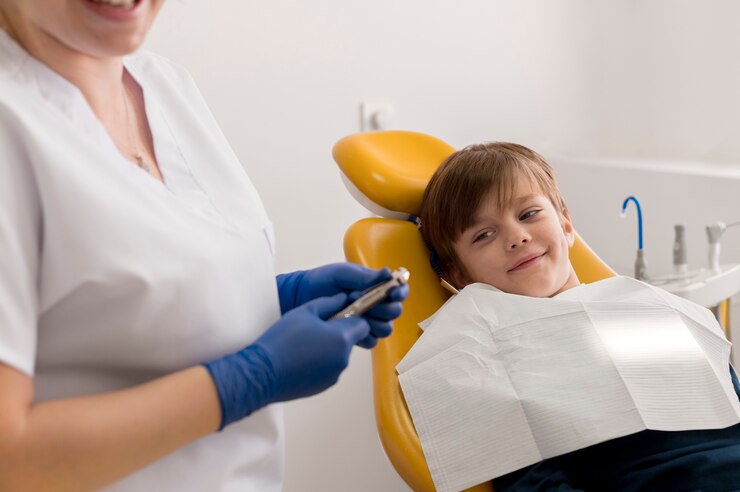
🐯 🎀 𝒞𝐻𝐼𝐿𝒟 𝒟𝐸𝒩𝒯𝒜𝐿 𝒞𝒜𝑅𝐸 - 𝒞𝒜𝑅𝐼𝒩𝒢 𝐹🍑𝑅 𝐿𝐼𝒯𝒯𝐿𝐸 𝒮𝑀𝐼𝐿𝐸𝒮, ❁𝒩𝐸 𝒮𝒯𝐸𝒫 𝒜𝒯 𝒜 𝒯𝐼𝑀𝐸 🎀 🐯
Healthy teeth and oral hygiene are absolutely necessary to your child’s overall health. Teeth help the child eat and talk. Milk teeth are important and need to last till the permanent are ready to erupt. Kids dentistry focuses on the dental needs of children, from infancy through adolescence. At our Sparkle Dental Clinic, we understand the unique requirements of our young patients, offering a warm and welcoming environment that aims to create a positive and nurturing dental experience for children of all ages. Indications for Pediatric Dentistry/dentistry for children: 1. Early childhood dental caries and preventive care 2. Guidance for proper oral hygiene habits and nutritional counseling 3. Assessment and management of teething issues and other oral developmental concerns 4. Monitoring and guidance for orthodontic concerns and misalignment issues 5. Diagnosis and treatment of pediatric periodontal disease and other oral conditions 6. Education and support for parents regarding their child's oral health and development Procedures in Child Dentistry: 1. Gentle and comprehensive oral examinations for children of all ages 2. Preventive treatments such as fluoride application and dental sealants 3. Early orthodontic assessments and intervention when necessary 4. Restorative procedures like fillings, crowns, and pulpotomies tailored for children 5. Behavior management techniques to alleviate dental anxieties and promote cooperation during treatments 6. Specialized guidance for maintaining good oral health habits at home, including brushing and flossing techniques 7. Collaborative care with other healthcare professionals to ensure comprehensive and holistic treatment for our young patients. 【FAQS】 1. When should my child first visit the dentist? Ans: The American Academy of Pediatric Dentistry recommends that children should have their first dental visit by their first birthday or within six months after their first tooth appears. 2. What are dental sealants, and does my child need them? Ans: Dental sealants are thin protective coatings applied to the chewing surfaces of molars to prevent tooth decay. Your child may benefit from dental sealants, especially if they are prone to cavities or have deep grooves in their molars. 3. What should I do if my child has a dental emergency? Ans: In the case of a dental emergency, such as a knocked-out tooth or a toothache, it's crucial to contact the dentist immediately for guidance. Our child dentist can provide instructions on what steps to take until you can bring your child in for an emergency visit. To know more about the importance of preventive care and regular children dental check-ups to maintain optimal oral health during childhood and beyond, contact us at Sparkle Dental Clinic, 𝟗𝟎𝟒𝟑𝟏𝟗𝟑𝟎𝟐𝟏.

𝐑𝐎𝐎𝐓 𝐂𝐀𝐍𝐀𝐋 𝐓𝐑𝐄𝐀𝐓𝐌𝐄𝐍𝐓 𝐅𝐎𝐑 𝐀𝐋𝐋 𝐀𝐆𝐄𝐒
Root canal treatment is a dental procedure designed to treat an infected or inflamed tooth. It relives pain and prevents the need for extraction. What happens during root canal treatment? During the treatment, the infected pulp of the tooth is removed, and the inside of the tooth is carefully cleaned and disinfected. It is then filled and sealed with a rubber-like material to prevent further infection. A crown may be placed on the treated tooth for added protection and strength. Inlay and onlays are also preferred now-a-days instead of crown. When is it Needed: Root canal treatment is necessary when the pulp, which is the innermost layer of the tooth containing blood vessels, nerves, and connective tissues, becomes infected or inflamed due to deep decay, cracks, or fracture in the tooth. Aftercare: Following a root canal, proper oral hygiene is crucial to ensure the tooth remains healthy. Regular brushing, flossing, and dental check-ups are necessary to maintain the tooth's health and prevent further issues. Long-Term Benefits: Root canal treatment is a highly successful procedure that can save your natural tooth and prevent loss of tooth due to extraction. It helps restore normal biting force and maintains the natural appearance of the tooth. Procedure: 1. An initial examination and X-rays are conducted to assess the tooth's condition and determine the extent of the infection or damage. 2. Local anesthesia is administered to ensure the patient is comfortable throughout the procedure. 3. An opening is made in the tooth to access the infected or inflamed pulp, which is then carefully removed. 4. The root canal is thoroughly cleaned, shaped, and disinfected to eliminate any remaining bacteria and debris. 5. The canal is filled with a biocompatible material to prevent recontamination and to support the tooth's structure. 6. A temporary filling may be placed to seal the tooth until the final restoration is ready. 7. In a subsequent visit, a permanent dental crown is placed to protect and strengthen the treated tooth, restoring its function and appearance. endodontists recommend regular follow-up appointments are recommended to monitor the healing process and ensure the long-term success of the root canal treatment. 【FAQS】 1. is Root Canal Treatment/RCT painful? Ans: With modern techniques and advanced instruments root canal treatment with our dentist is hardly painful. 2. Do you do single visit/one visit RCT in Sparkle Dental Clinic? Ans: Absolutely! Sparkle Dental Clinic specializes in advanced single visit root canal treatments, ensuring efficient and effective care in just one appointment. 3. Can I have multiple visit RCT? Ans: Certainly, multiple visit root canal treatment is also available at Sparkle Dental Clinic. Our dedicated team of dental professionals customizes treatment plans to accommodate varying dental needs If you still have any doubts, the dental clinic near me can assist you. Reach out to schedule a consultation and have all your dental concerns addressed with professional care and guidance. Reach out to us at 𝟗𝟎𝟒𝟑𝟏𝟗𝟑𝟎𝟐𝟏
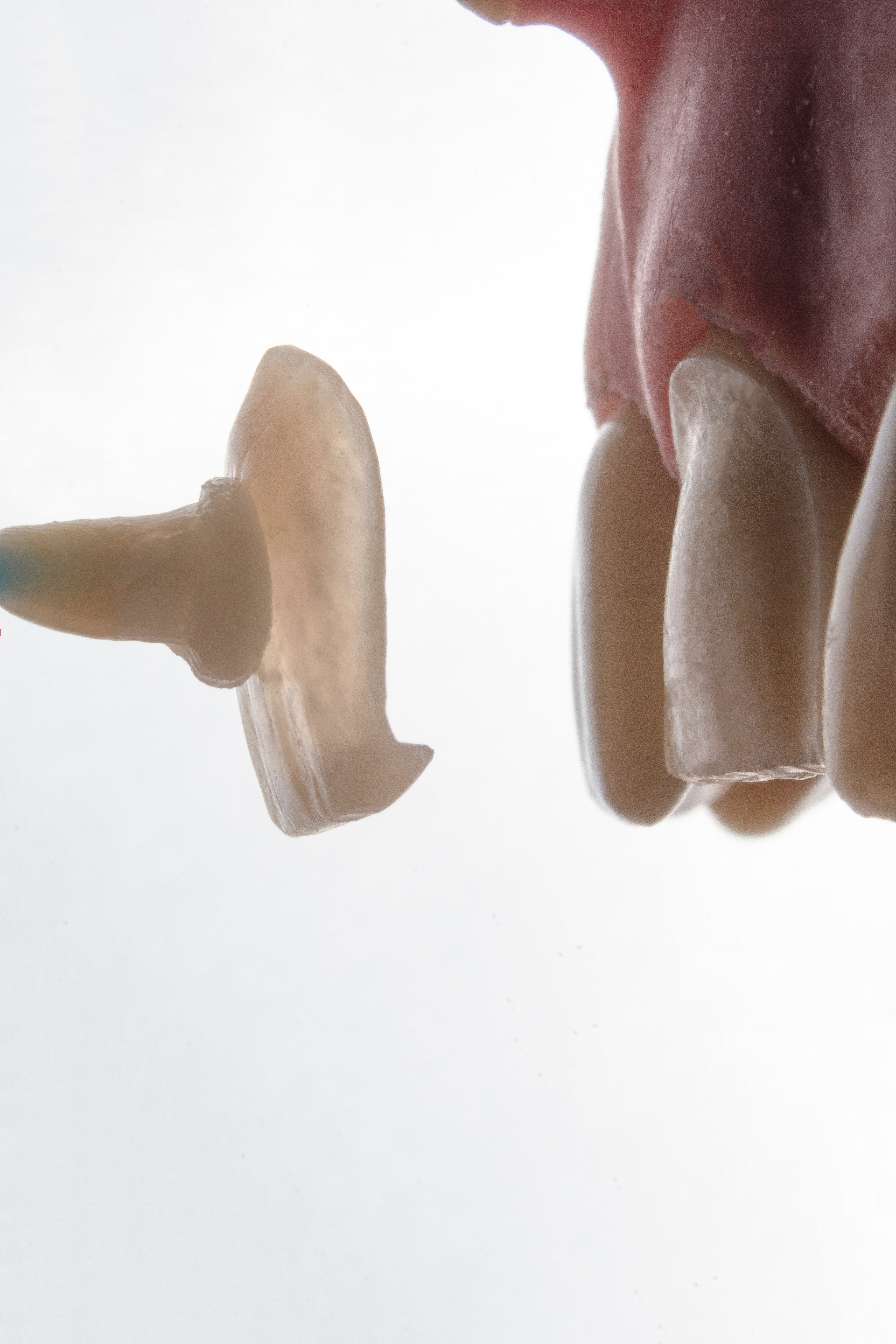
𝐂𝐎𝐒𝐌𝐄𝐓𝐈𝐂 𝐃𝐄𝐍𝐓𝐈𝐒𝐓𝐑𝐘 - 𝐓𝐑𝐀𝐍𝐒𝐅𝐎𝐑𝐌𝐀𝐓𝐈𝐕𝐄 𝐕𝐄𝐍𝐄𝐄𝐑𝐒 𝐀𝐍𝐃 𝐋𝐀𝐌𝐈𝐍𝐀𝐓𝐄𝐒
Dental veneers/ Laminates are thin, custom-made shells crafted from tooth-colored materials designed to cover the front surface of teeth. These versatile cosmetic dental treatment effectively mask dental imperfections such as discoloration, chips, or misalignments, helping to achieve a natural-looking smile. Veneers are useful to enhance tooth shape, size, and color. They can be used in the following situations: 1. Discolored Teeth: Veneers can effectively cover severely discolored or stained teeth that do not respond well to whitening treatments. 2. Chipped or Worn Teeth: Veneers can restore the appearance of chipped or worn teeth, providing a natural and uniform look to the smile. 3. Uneven or Irregularly Shaped Teeth: Veneers can create a more symmetrical and aesthetically pleasing appearance for teeth that are irregularly shaped or have uneven surfaces. 4. Gaps between Teeth: Veneers can be used to close small gaps or spaces between teeth, providing a more uniform and aligned smile. 5. Minor Misalignments: In some cases, veneers can be an alternative to orthodontic treatment for minor misalignments, creating the appearance of straighter teeth. Procedures: 1. Consultation and Treatment Planning: The initial step involves a comprehensive dental examination and discussion with the dentist to determine the suitability of veneers for the patient's specific dental concerns. 2. Preparation of Teeth: A thin layer of enamel is typically removed from the tooth surface to create space for the veneer. This process is often performed under local anesthesia to ensure patient comfort. 3. Impressions and Customization: Impressions of the prepared teeth are taken to create custom-made veneers that perfectly fit the patient's dental structure and desired aesthetic goals. 4. Temporary Veneers (if necessary): Temporary veneers may be placed to protect the prepared teeth while the permanent veneers are being fabricated in a dental laboratory. 5. Bonding of Veneers: Once the custom veneers are ready, they are bonded to the teeth using a special adhesive and light curing, creating a strong and durable bond. 6. Final Adjustments and Polishing: Any necessary adjustments are made to ensure the proper fit and bite alignment of the veneers. The dentist will then polish the veneers for a natural and seamless appearance. 7. Follow-up and Maintenance: Patients are advised on proper oral hygiene practices and may be scheduled for regular follow-up appointments to monitor the condition of the veneers and overall oral health. Regular dental check-ups are recommended to ensure the longevity of the veneers and maintain optimal oral health. 【FAQS】 1. How long do dental veneers typically last? Ans: With proper care and maintenance, dental veneers can last for 10-15 years or even longer. However, their longevity can depend on individual oral hygiene practices, lifestyle habits, and the quality of the veneers. 2. Can dental veneers be used to address multiple dental issues simultaneously? Ans: Veneers are versatile and can address various aesthetic concerns, including discoloration, chips, gaps, and misalignments. However, they may not be suitable for severe cases of misalignment or extensive tooth damage, which might require alternative treatments such as braces or crowns Get ready for a brand-new smile with our special veneers and laminates. Our experienced dentist at Sparkle Dental Clinic can make your teeth look better, feel great, and give you the confidence to smile more. Call us on 𝟗𝟎𝟒𝟑𝟏𝟗𝟑𝟎𝟐𝟏 to fix an appointment to experience the joy of a beautiful smile tailored just for you.
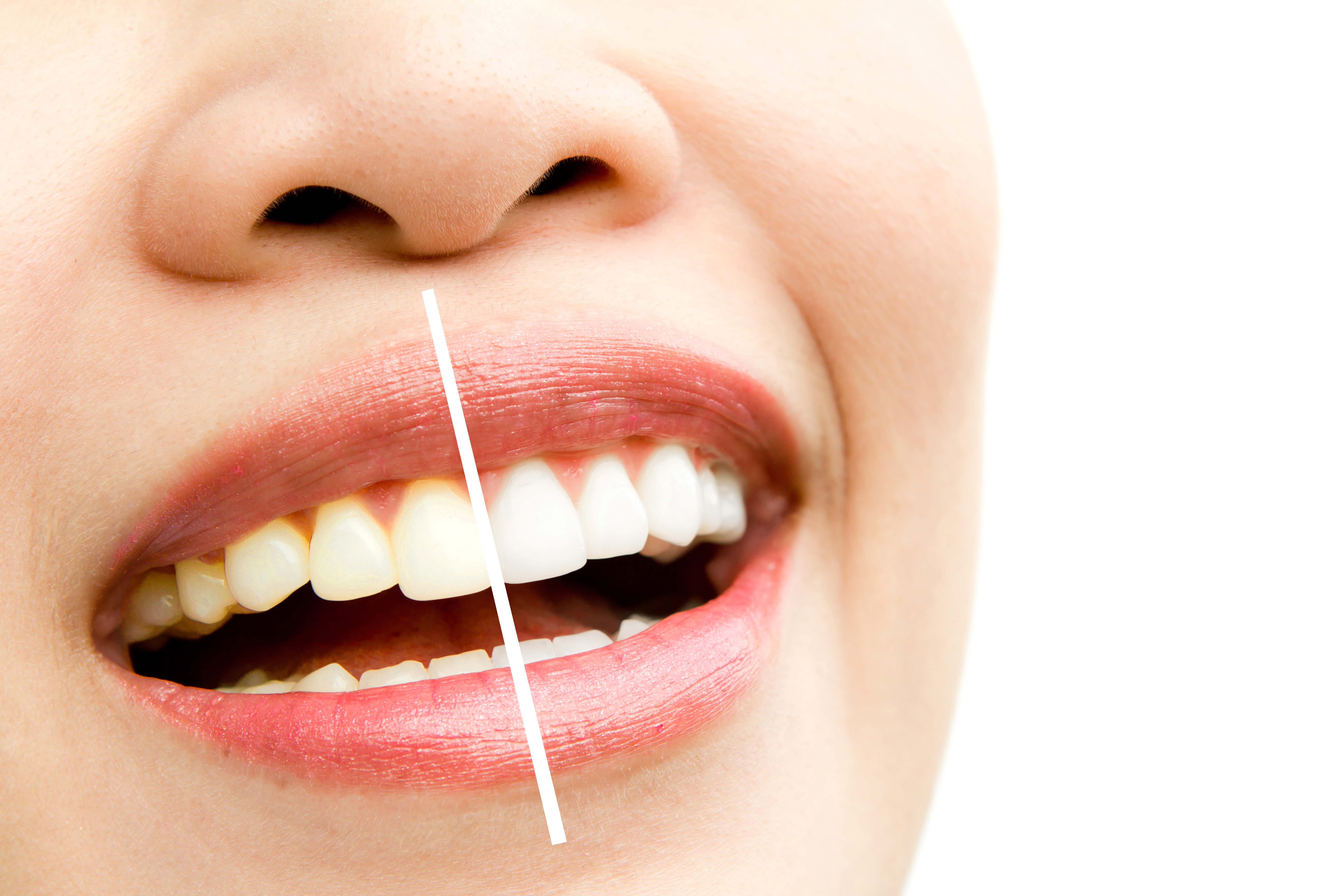
𝐓𝐎𝐎𝐓𝐇 𝐖𝐇𝐈𝐓𝐄𝐍𝐈𝐍𝐆 𝐒𝐄𝐑𝐕𝐈𝐂𝐄𝐒
Brighten your smile and boost your confidence with our professional teeth whitening solutions. Our experienced dental doctor offers safe and effective treatments that can effectively remove stubborn stains and discoloration, unveiling a dazzling, radiant smile. Why go for teeth whitening? 1. Tooth Stains: Tooth discoloration caused by external factors such as consumption of staining substances like coffee, tea, or tobacco. 2. Aging: Natural aging can lead to the darkening of teeth as the enamel becomes thinner, revealing the dentin underneath. 3. Internal Stains: Internal discoloration due to developmental conditions, trauma, or exposure to certain medications during tooth development. At Sparkle Dental Clinic, we provide at-Home Whitening, in the comfort of your home. Customized trays are given. These trays are then filled with a lower concentration of the whitening agent and worn for a specified period, usually a couple of hours each day or overnight, for several weeks to achieve the desired level of whitening. 【FAQS】 1. Is tooth whitening safe? Ans: Yes, when performed by a dental professional, tooth whitening is considered safe and effective. However, some individuals may experience temporary tooth sensitivity or gum irritation, which usually resolves after the treatment. 2. How can I maintain the results of tooth whitening? Ans: Maintaining good oral hygiene practices, reducing the consumption of staining substances, and scheduling regular dental cleanings can help prolong the effects of tooth whitening It's important to consult with a dental professional to determine the most suitable tooth whitening approach based on individual needs, dental history, and the nature of the discoloration. Discover the transformative power of our tooth whitening services and let your vibrant smile shine. Contact us today at 𝟗𝟎𝟒𝟑𝟏𝟗𝟑𝟎𝟐𝟏 to schedule a consultation and take the first step towards a brighter, more confident you
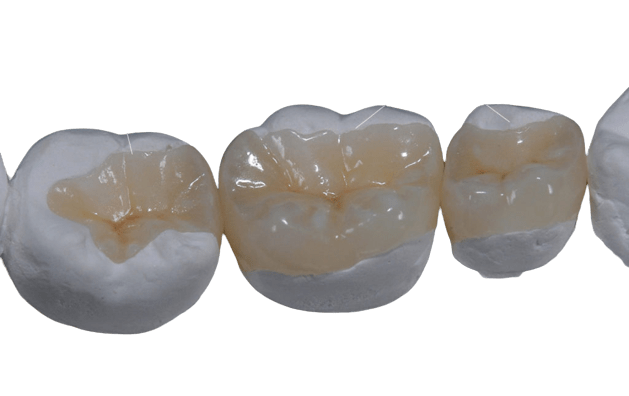
𝐈𝐍𝐋𝐀𝐘𝐒 𝐀𝐍𝐃 𝐎𝐍𝐋𝐀𝐘𝐒 - 𝐑𝐄𝐒𝐓𝐎𝐑𝐈𝐍𝐆 𝐒𝐌𝐈𝐋𝐄𝐒, 𝐏𝐑𝐄𝐒𝐄𝐑𝐕𝐈𝐍𝐆 𝐒𝐓𝐑𝐄𝐍𝐆𝐓𝐇
Inlays and onlays are advanced restorations that match the color of tooth and preserve the tooth structure. These cosmetic dental fillings are generally more durable than regular fillings. Dental specialist at Sparkle Dental Clinic prefers these restorations as they offer a conservative approach, preserving as much natural tooth structure as possible while providing durability and aesthetic appeal. Which dental patients are good for inlays and onlays: 1. Moderate Tooth Decay: When a tooth has experienced decay that is too extensive for a traditional filling but does not require a full dental crown 2. Fractured Teeth: In cases where a tooth has experienced a minor to moderate fracture or damage, an inlay or onlay can help restore its structure and function. 3. Large Fillings Replacement: In situations where an existing large filling needs replacement due to wear or failure, inlays or onlays can provide a more durable and conservative solution. 4. Cosmetic Enhancements: Inlays and onlays can also be used for cosmetic purposes, improving the appearance of teeth with structural issues, such as cracks or discoloration. Procedure 1. Tooth Preparation: The affected tooth is prepared by removing any decay or damaged areas. The dentist will carefully shape the tooth to create space for the inlay or onlay. This step may involve the use of local anesthesia to ensure the patient's comfort. 2. Impressions: An impression of the prepared tooth is taken to create a custom-fit inlay or onlay. This impression is sent to a dental laboratory where the restoration will be fabricated. 3. Temporary Restoration: In some cases, a temporary restoration may be placed on the prepared tooth to protect it while the final inlay or onlay is being created. 4. Placement of the Final Restoration: Once the custom inlay or onlay is ready, the temporary restoration, if used, is removed, and the permanent restoration is carefully placed and bonded to the tooth using dental cement. The dentist will ensure that the fit is precise and that the restoration seamlessly blends with the surrounding teeth. 【FAQS】 1. How long do inlays and onlays typically last? Ans: Inlays and onlays are known for their durability and can last for many years, especially with proper oral hygiene and regular dental check-ups. 2. Are there any dietary restrictions after getting an inlay or onlay? Ans: While there are no specific restrictions, it is advisable to avoid biting down on extremely hard foods or objects to prevent damage to the restoration Contact our dental office at 𝟗𝟎𝟒𝟑𝟏𝟗𝟑𝟎𝟐𝟏 today to schedule a consultation and explore how inlays and onlays can help restore your smile while preserving your natural tooth structure

𝐃𝐄𝐍𝐓𝐀𝐋 𝐈𝐌𝐏𝐋𝐀𝐍𝐓𝐒 - 𝐓𝐇𝐄 𝐒𝐎𝐋𝐔𝐓𝐈𝐎𝐍 𝐓𝐎 𝐌𝐈𝐒𝐒𝐈𝐍𝐆 𝐓𝐄𝐄𝐓𝐇
Dental implants are replacements for missing teeth. They look and function like natural teeth. They provide a strong foundation for fixed or removable replacement teeth and are designed to blend in with your other teeth. They help restore your ability to chew food and improve your smile and overall oral health. and can last lifetime if maintained properly The process of getting dental implants involves multiple steps, including a comprehensive dental exam, the implant placement surgery, and the placement of the artificial tooth. The implant specialist team at Sparkle Dental Clinic will guide you through each step and ensure your comfort throughout the process. Indications for Dental Implants: 1. Tooth Loss: Dental implants are an ideal solution for individuals with one or more missing teeth, providing a permanent and natural-looking replacement. 2. Improved Chewing and Speech: Dental implants can significantly enhance the ability to chew and speak properly, restoring full functionality to the mouth. 3. Preservation of Jawbone: Implants help preserve the jawbone's structure and prevent bone loss that may occur with missing teeth, maintaining the overall integrity of the facial structure. 4. Denture Support: Implants can also serve as support for dentures, providing increased stability and preventing them from slipping or causing discomfort. Procedure for Dental Implants: 1. Initial Consultation: The process begins with a comprehensive examination and consultation to determine the patient's suitability for dental implants. This typically involves a review of the patient's dental and medical history, along with the necessary X-rays and 3D imaging for precise treatment planning. 2. Surgical Placement: The dental implant is surgically placed into the jawbone, serving as an artificial tooth root. This procedure is performed under local anesthesia to ensure patient comfort. 3. Osseointegration: Over the following weeks or months, the implant fuses with the jawbone through a process called osseointegration, which provides a stable foundation for the artificial tooth or crown. 4. Abutment Placement: Once osseointegration is complete, an abutment is attached to the implant, which serves as a connector for the replacement tooth or crown. 5. Crown Placement: Finally, a custom-made dental crown is attached to the abutment, providing a natural-looking and fully functional replacement tooth that seamlessly integrates with the existing teeth. 6. Follow-up Care: Patients are provided with post-operative care instructions and scheduled for regular follow-up appointments to monitor the healing process and ensure the long-term success of the dental implant. 【FAQS】 1. What is age limit for receiving dental implants? Ans: Age is not a limiting factor for dental implant candidacy. As long as an individual is in good overall health and has sufficient jawbone density to support the implant, our implant dental team can be consider you for implant procedure. 2. What care should I take after implant: Ans: Proper oral hygiene is crucial for the success of your dental implants. Regular brushing, flossing, and dental check-ups are necessary to ensure the health of your implants and surrounding natural teeth. 3. How much do implants cost? Ans: Dental implants are a durable investment in your well-being for the long run. Initial cost of dental implants may seem higher than other tooth replacement options, they benefit you in long run. Dental implants can significantly enhance your quality of life, restoring the ability to smile with confidence. Experience the transformation today - schedule a consultation with Sparkle Dental Implant Clinic to discover how dental implants can revitalize your smile and oral health.
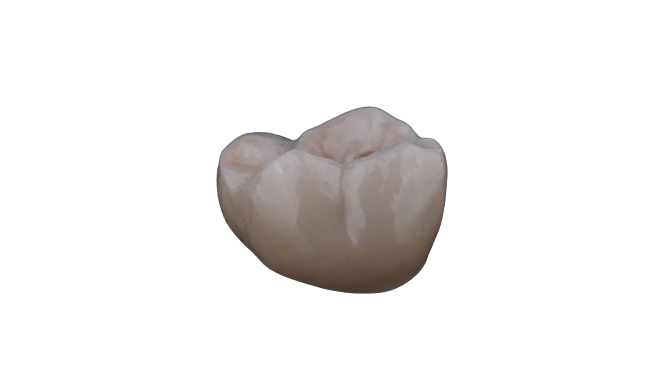
𝐃𝐄𝐍𝐓𝐀𝐋 𝐂𝐑𝐎𝐖𝐍𝐒
Dental crowns are tooth-shaped caps that are placed over a damaged or decayed tooth to restore its shape, size, strength, and overall appearance. They are used to cover a tooth after a root canal treatment, to protect a weak tooth from fracturing, or to restore a significantly worn-down or discolored tooth. When will my dentist advice dental caps? 1. Severe tooth decay that cannot be addressed with a filling 2. Cracked or fractured teeth 3. Large fillings that make the tooth weak 4. Cosmetic enhancement for misshapen or discolored teeth 5. Protection for a tooth following a root canal treatment 6. Support for dental bridges or dental implants Types of Dental Crowns: Common types of dental crowns include: Porcelain-fused-to-metal (PFM) crowns Ceramic or porcelain crowns - Emax, Zirconia Metal crowns Procedure for Dental Crown Placement: 1. Dentist will first examine and assess the teeth surrounding structures. 2. Tooth preparation, which involves shaping the tooth to accommodate the crown. 3. Taking impressions of the prepared tooth to create a custom-made crown. 4. Temporary crown may be given while the permanent one is being fabricated, at the dental lab 5. Removal of the temporary crown and placement of the permanent crown during a subsequent appointment. 【FAQS】 1. Are dental crowns noticeable or distinguishable from natural teeth? Ans: Modern dental crowns are designed to closely match the color, shape, and size of natural teeth, making them virtually indistinguishable from surrounding teeth. However, metal crowns will not have color similar to the teeth 2. Are dental crowns a suitable option for children or teenagers? Ans: Dental crowns can be recommended for children or teenagers, particularly in cases where a primary tooth has been significantly damaged or to protect a tooth at risk of fracture. It's essential to consult with a qualified dentist to determine the most suitable type of dental crown based on individual dental needs and preferences. Schedule a consultation at Sparkle Dental Clinic 𝟗𝟎𝟒𝟑𝟏𝟗𝟑𝟎𝟐𝟏 for quality and premium dental crown solutions and achieve a dazzling, functional smile
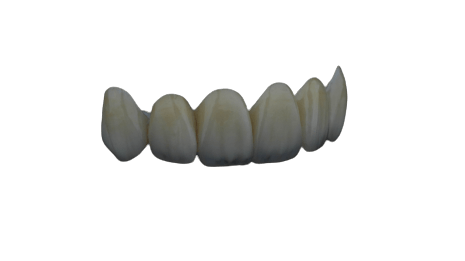
𝐁𝐑𝐈𝐃𝐆𝐄𝐒 𝐀𝐍𝐃 𝐅𝐈𝐗𝐄𝐃 𝐏𝐀𝐑𝐓𝐈𝐀𝐋 𝐃𝐄𝐍𝐓𝐔𝐑𝐄𝐒
Bridges and fixed partial dentures are dental prosthetic devices used to replace one or more missing teeth. They are designed to "bridge" the gap between teeth, providing a natural-looking, functional, and stable solution for restoring the appearance and functionality of a complete smile. These dental devices are commonly used in the following cases: 1. To replace one or more missing teeth 2. To prevent the shifting of adjacent teeth 3. To restore proper bite alignment and chewing function 4. To enhance overall oral aesthetics and improve self-confidence Dental Clinic Process for Bridges and Fixed Partial Dentures: 1. Initial consultation and examination to assess the condition of the teeth and gums. 2. Preparation of the abutment teeth, which involves reshaping them to accommodate the dental crowns that will support the bridge. 3. Taking impressions of the prepared teeth and the surrounding dental structures to create a custom-fit bridge or fixed partial denture. 4. Placement of a temporary restoration while the final bridge or fixed partial denture is being fabricated. 5. Fitting and cementing the custom-made bridge or fixed partial denture during a subsequent appointment. 【FAQS】 1. How long do bridges and fixed partial dentures last? Ans: With proper care and regular dental check-ups, bridges and fixed partial dentures can last for many years, typically between 5 to 15 years or longer, depending on individual oral hygiene practices and habits. 2. Can bridges and fixed partial dentures be replaced if they become damaged or worn over time? Ans: Yes, bridges and fixed partial dentures can be replaced by a dental professional to restore oral function and aesthetics. Regular dental visits can help monitor the condition of the prosthetic and ensure timely replacements if necessary Regular dental check-ups and adherence to good oral hygiene practices are crucial to maintaining the integrity and durability of bridges and fixed partial dentures. It's essential to consult with a qualified dentist to determine the most suitable option based on your individual dental needs and to ensure proper maintenance for the longevity and functionality of the dental prosthetic. Call 𝟗𝟎𝟒𝟑𝟏𝟗𝟑𝟎𝟐𝟏 for a expert opinion.
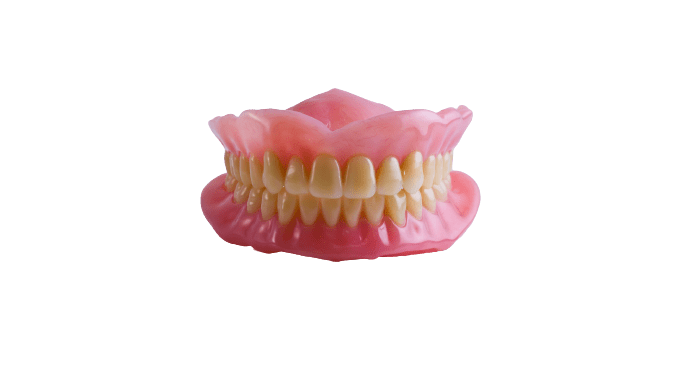
𝗖𝗢𝗠𝗣𝗟𝗘𝗧𝗘 𝗗𝗘𝗡𝗧𝗨𝗥𝗘𝗦
Loss of all teeth can indeed occur due to various reasons, ranging from untreated tooth decay (caries) and advanced periodontal (gum) disease to poor oral hygiene practices. Other contributing factors may include systemic health conditions, genetic predispositions, traumatic injuries, and lifestyle habits Indications: Complete dentures are an ideal option for individuals with extensive tooth loss, providing a reliable and functional solution to restore oral aesthetics and enhance everyday functionality. They are recommended for patients who require a full set of upper and lower teeth replacement due to decay, injury, or other dental complications. Complete tooth loss can lead to difficulties in speaking, chewing, and smiling comfortably, affecting one's self-confidence and social interactions. Treatment Protocol at the Dental Center: The complete denture procedure typically involves an initial consultation and evaluation to determine the best treatment plan. This is followed by precise measurements and impressions of the gums and jaw, ensuring a custom-fit design. The dentures are then meticulously crafted to match the patient's unique oral structure, providing a seamless and comfortable fit. Regular follow-ups are recommended to monitor the denture's performance and ensure optimal functionality and comfort. 【FAQS】 1. How long does it take to get used to wearing complete dentures? Ans: Adjusting to complete dentures can be likened to wearing a new pair of shoes. Initially, there might be some discomfort and a need to get used to the fit. As with shoes, once the dentures begin to conform to the unique contours of the mouth, any initial discomfort tends to diminish, allowing for more natural and comfortable use over time. 2. What kind of difficulties can I experience with dentures: Ans: Initially, some discomfort or minor difficulty with speaking and eating may occur, but with time and practice, most individuals adapt to their new dentures. Experience the transformative benefits of complete dentures, tailored to restore your smile's natural beauty and functionality. Schedule a consultation with our experienced and best dental team today! Call us on 𝟗𝟎𝟒𝟑𝟏𝟗𝟑𝟎𝟐𝟏 to know more about the different kinds of dentures available.
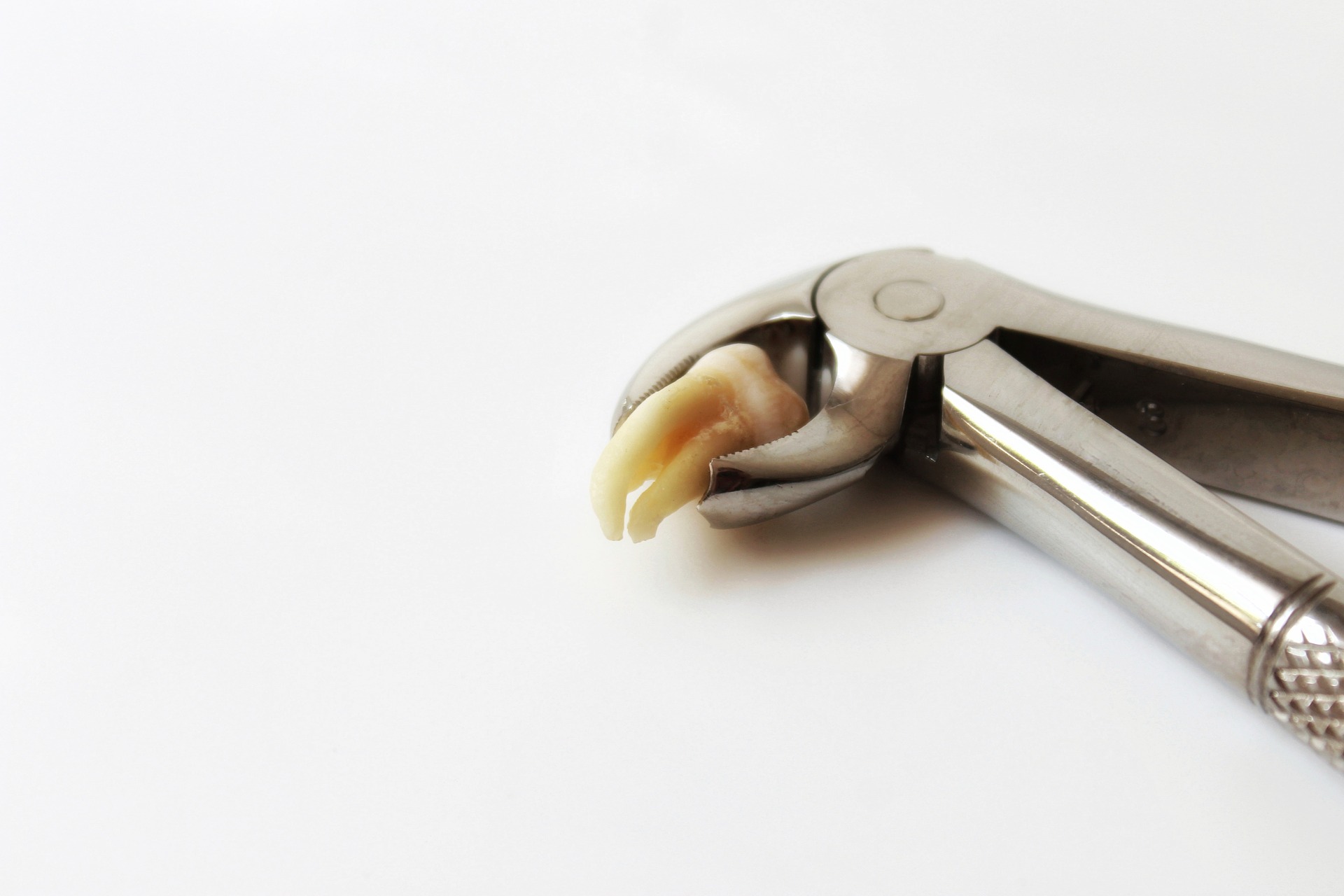
𝗧𝗢𝗢𝗧𝗛 𝗘𝗫𝗧𝗥𝗔𝗖𝗧𝗜𝗢𝗡
We at Sparkle Dental Clinic, believe and work towards keeping your natural teeth for lifetime. but sometimes, we are left with no choice but to extract. There is nothing to fear during or after extraction. one can carry about their day to day activities without any hindrance. Tooth extraction is a common procedure typically performed by a dentist or dental surgeon. Here are some common reasons for tooth extraction: 1. Severe tooth decay: When tooth decay has damaged a tooth extensively, making it unsalvageable, extraction may be necessary to prevent the spread of infection. 2. Periodontal disease: Advanced gum disease can lead to the loosening of teeth, requiring extraction to prevent further damage to surrounding teeth and bone. 3. Crowded mouth: In cases where the mouth is overcrowded, teeth may need to be extracted to prepare for orthodontic treatment or to make room for proper tooth alignment. 4. Impacted teeth: When a tooth cannot fully emerge from the gum line, such as impacted wisdom teeth, extraction might be necessary to prevent pain, infection, or damage to surrounding teeth. 5. Risk of infection: In individuals with a compromised immune system, a tooth that is at risk of causing an infection may need to be extracted to prevent the spread of infection to other parts of the body. 6. Trauma or injury: Teeth that have been severely damaged due to trauma or injury may need to be extracted if they cannot be effectively repaired. Here is an overview of what to expect during and after a tooth extraction: 1. Before the extraction: Your dentist will review your medical history and perform a thorough examination of the tooth and surrounding area. Local anesthesia or sedation may be administered to numb the area and minimize discomfort during the procedure. For more complex cases, such as impacted teeth, your dentist may refer you to an oral surgeon. 2. During the extraction: The dentist will use specialized instruments to loosen the tooth in its socket before carefully removing it. Gauze is placed over the extraction site to control bleeding, and stitches may be required in some cases. 3. After the extraction: It's normal to experience some bleeding for a few hours after the procedure. Bite on a gauze pad placed over the extraction site to help stop the bleeding. Your dentist may recommend applying an ice pack to the outside of your cheek to reduce swelling. Pain and discomfort can be managed with over-the-counter or prescription pain medications as prescribed by your dentist. Avoid using a straw, spitting, or rinsing vigorously for 24 hours after the extraction to prevent dislodging the blood clot and delaying healing. Stick to soft foods and avoid hard, chewy, or hot foods that could irritate the extraction site. Maintain good oral hygiene, but be gentle around the extraction site to prevent infection. Your dentist may recommend a saltwater rinse after 24 hours. It's essential to follow your dentist's post-extraction instructions carefully. Contact your dentist if you experience severe pain, excessive bleeding, swelling, or any other concerns that might indicate a complication. With proper care, the extraction site should heal within a few weeks. 【FAQS】 1. Why might I need a tooth extraction? Ans: Tooth extraction may be necessary for various reasons, including severe tooth decay, advanced gum disease, tooth overcrowding, or in preparation for orthodontic treatment. 2. What precautions should I take after a tooth extraction? Ans: Following the dentist's instructions is crucial. This typically includes avoiding hard or sticky foods, practicing gentle oral hygiene, and taking any prescribed pain medications or antibiotics as directed. "Experiencing dental discomfort or in need of a tooth extraction? Our expert team is here to help. Contact us at 𝟗𝟎𝟒𝟑𝟏𝟗𝟑𝟎𝟐𝟏 to schedule a consultation and find the relief you need. Our caring professionals will guide you through the process and provide the best care for your dental health. Don't let dental concerns hold you back, reach out today!"
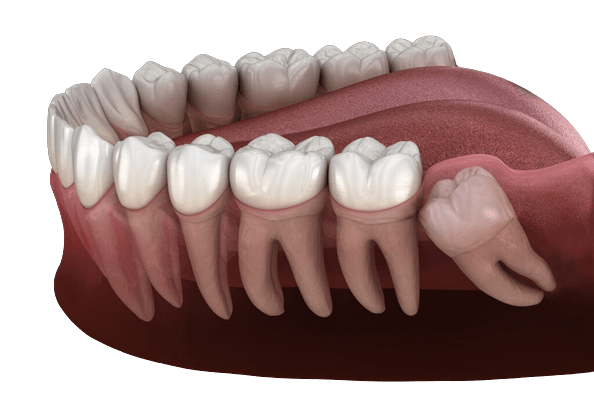
𝐖𝐈𝐒𝐃𝐎𝐌 𝐓𝐎𝐎𝐓𝐇 𝐄𝐗𝐓𝐑𝐀𝐂𝐓𝐈𝐎𝐍
Wisdom teeth are named as such because they tend to emerge during adulthood, when individuals are considered to be older and presumably wiser. Typically emerging between 17 and 25 years, wisdom teeth can sometimes remain trapped in the jawbone, leading to impaction. Approximately 70% of the Indian population experiences discomfort related to wisdom tooth issues. When does the dental/oral surgeon advice wisdom tooth extraction: 1. Impacted Wisdom Teeth: When wisdom teeth do not have enough space to emerge or develop normally, they can become impacted, causing pain, infection, or other dental issues. 2. Pain and Discomfort: Wisdom teeth can lead to significant pain and discomfort, especially when they are impacted, infected, or exerting pressure on neighboring teeth. 3. Tooth Misalignment: Wisdom teeth can sometimes cause misalignment or crowding issues if there is insufficient space in the dental arch. 4. Risk of Infection: The positioning of wisdom teeth can make them challenging to clean properly, increasing the likelihood of tooth decay, gum disease, and infections. The Steps of the Dental Treatment: 1. Evaluation and Examination: The dentist or oral surgeon will assess the position and condition of the wisdom teeth using X-rays and a clinical examination to determine the best course of action. 2. Anesthesia Administration: Local anesthesia, will be used to ensure the patient's comfort during the extraction procedure. 3. Surgical Extraction: The oral surgeon makes small cut on the covering gums, removes any bone that blocks access to the tooth, and then extracts the tooth. In some cases, the tooth may be split into smaller pieces for easier removal. 4. Suturing and Recovery: After the tooth is removed, the surgical site may be sutured to aid in proper healing. The patient is typically provided with post-operative instructions for managing any discomfort, swelling, and promoting a smooth recovery. 5. Follow-up Care: A follow-up appointment may be scheduled to monitor the healing progress and address any concerns or complications. 【FAQS】 1. Are there any dietary restrictions after the procedure? Ans: Soft foods that require minimal chewing are recommended during the initial recovery period. Patients should avoid hard, crunchy, or sticky foods that may disrupt the healing process. 2. What can happen if I don't remove the wisdom teeth? Ans: Leaving impacted or problematic wisdom teeth untreated can lead to persistent pain, infection, damage to adjacent teeth, and other oral health issues over time. 3. How long will it take to recover? Ans: In most cases, individuals can return to work or resume their regular activities with one or two days after a wisdom tooth extraction. However, the recovery period may vary depending on the complexity of the extraction, the individual's pain tolerance, and the nature of their work. Experiencing Wisdom Tooth Discomfort? Consult Our Expert Dentists for Personalized Assessment and Relief. Schedule Your Appointment Today at 𝟗𝟎𝟒𝟑𝟏𝟗𝟑𝟎𝟐𝟏.

𝐆𝐄𝐑𝐈𝐀𝐓𝐑𝐈𝐂 𝐃𝐄𝐍𝐓𝐈𝐒𝐓𝐑𝐘 - 𝐂𝐀𝐑𝐈𝐍𝐆 𝐅𝐎𝐑 𝐄𝐋𝐃𝐄𝐑𝐋𝐘
Mouth is referred to as a mirror of overall health. Eating nutritious wholesome meal becomes more important as we age. Healthy teeth and mouth are needed even in old age to chew food and maintain a good quality of life. As individuals age, they may encounter specific dental challenges that require tailored care and attention. At Sparkle Dental Clinic, we prioritize the unique needs of our senior patients, providing comprehensive and compassionate dental services to ensure their continued oral well-being. Indications for Geriatric Dentistry: 1. Age-related dental conditions such as tooth loss and gum disease 2. Dry mouth or decreased salivary flow leading to an increased risk of dental decay 3. Diminished dexterity, making oral hygiene maintenance more challenging 4. Dental conditions associated with underlying health issues like diabetes or cardiovascular disease 5. Management of pre-existing dental restorations and prosthetics requiring upkeep or replacement Here are some common dental treatment options and considerations for the elderly: 1. Regular dental check-ups and cleanings: Regular visits to the dentist are crucial for maintaining good oral health. These appointments allow the dentist to identify any potential issues early and provide appropriate treatment. 2. Dentures: For those with multiple missing teeth, dentures can be an effective option for restoring the appearance and function of their teeth. Full or partial dentures can help improve chewing ability and speech. 3. Dental implants: In cases where a single tooth or multiple teeth are missing, dental implants can be a more permanent solution compared to dentures. Implants can provide a stable and long-lasting foundation for replacement teeth. 4. Gum disease treatment: Periodontal disease is a common issue among the elderly. Scaling and root planing, antibiotic treatments, and gum surgery may be necessary to address gum disease and prevent further complications. 5. Cavity treatment and fillings: Even in old age, tooth decay can still occur. Fillings and other restorative treatments can help preserve the remaining tooth structure and prevent further decay. 6. Root canal therapy: If an elderly individual is experiencing severe tooth pain or an infection in the tooth pulp, root canal therapy can be a viable option to save the affected tooth and alleviate discomfort. 7. Orthodontic treatment: In some cases, orthodontic treatments such as braces or aligners may be recommended to address misaligned teeth or jaw issues that can impact chewing and overall oral health. 8. Oral cancer screenings: Regular oral cancer screenings are important, especially for the elderly population, as the risk of oral cancer increases with age. Early detection can significantly improve treatment outcomes. 【FAQS】 1. Will you be able to come home for ental consultation? Ans: Yes, If you have an immobile elderly family member in need of home dental care, or emergency dental care, rest assured that we can arrange suitable and practical services to be delivered in the comfort of their own home 2. Can older adults get dental implants or dentures? Ans: Yes, dental implants and dentures are viable tooth replacement options for older adults, providing improved oral function and restoring confidence in their smiles. If you have any additional questions or need further assistance, please feel free to contact Sparkle Dental Clinic at 𝟗𝟎𝟒𝟑𝟏𝟗𝟑𝟎𝟐𝟏. We are dedicated to providing you with the support and information you require.
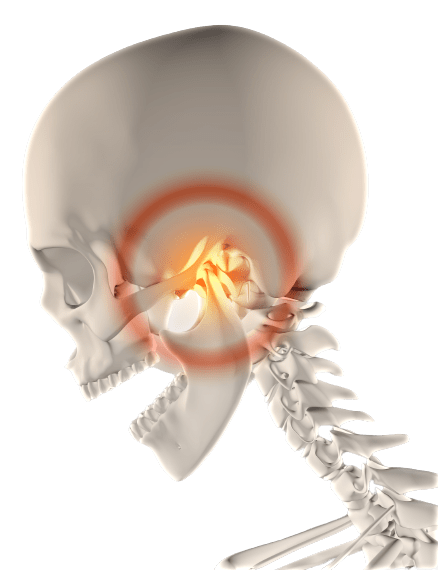
𝐉𝐀𝐖 𝐉𝐎𝐈𝐍𝐓 𝐏𝐀𝐈𝐍
Temporomandibular joint/jaw joint disorders can cause lot of discomfort and impact the movement of the jaw. When seeking treatment for TMJ disorders, it is essential to consult with a qualified dental professional who specializes in this area. What causes jaw joint and muscle pain? 1. Teeth grinding or clenching (bruxism): Excessive grinding or clenching of teeth, often due to stress or sleep disorders, can strain the jaw joint and surrounding muscles, leading to pain. 2. Arthritis: Arthritis can affect the temporomandibular joint, causing inflammation and discomfort. 3. Injury or trauma: Direct impact to the jaw area, such as from a sports injury or an accident, can lead to acute or chronic jaw joint pain. 4. Misalignment of the teeth or jaw: Malocclusion or misalignment of the teeth can strain the jaw joint, leading to pain and discomfort. 5. Stress: Chronic stress can contribute to jaw tension and muscle stiffness, leading to pain and associated muscle pain. 6. Chewing hard or tough foods: Excessive or prolonged chewing of hard, tough, or chewy foods can strain the jaw joint and muscles, leading to pain and discomfort. What are treatment options available: 1. Pain Medications: Pain relievers or anti-inflammatory drugs may be recommended 2. Therapeutic Techniques: Physical therapy, jaw exercises, and techniques such as stress management, relaxation exercises, and biofeedback can help improve jaw mobility and reduce muscle tension in the jaw area. 3. Dental Treatments: Oral splints, mouthguards, or occlusal appliances may be used to help reposition the jaw, reduce teeth clenching or grinding, and provide support for the muscles and joints in the jaw. 4. Lifestyle Modifications: Adopting practices such as eating soft foods, avoiding chewing gum, and applying heat or cold packs to the jaw area can help reduce discomfort and prevent further strain on the TMJ. 5. Full mouth rehabilitation: Persistent jaw joint pain, comprehensive full mouth rehabilitation services should be considered. Our specialized dental team offers personalized treatment plans, including targeted TMJ therapies, orthodontic interventions, and advanced prosthodontic techniques. A comprehensive approach that combines different treatment modalities may be necessary for effective management of TMJ pain. It is crucial for individuals experiencing TMJ pain to consult with a dental professional to determine the most suitable treatment plan based on their specific symptoms and overall health. An advanced radiographic imaging may be necessary. 【FAQS】 1. I am getting continuous headaches, could be be due to jaw joint problem? Ans: Yes, jaw joint pain can sometimes be associated with headaches, earaches, as the jaw joint joint is closely connected to these areas. 2. I am in lot of stress and hold my teeth tight, can this cause joint problem? Ans: Yes stress is a major contributor. TMJ pain can be caused by various factors, including teeth grinding, jaw misalignment, arthritis, or trauma to the jaw area. Discover how our full mouth rehabilitation services can alleviate your discomfort and restore seamless jaw function. Contact our expert dentists at Sparkle Dental Clinic at 𝟗𝟎𝟒𝟑𝟏𝟗𝟑𝟎𝟐𝟏 today for a personalized consultation.
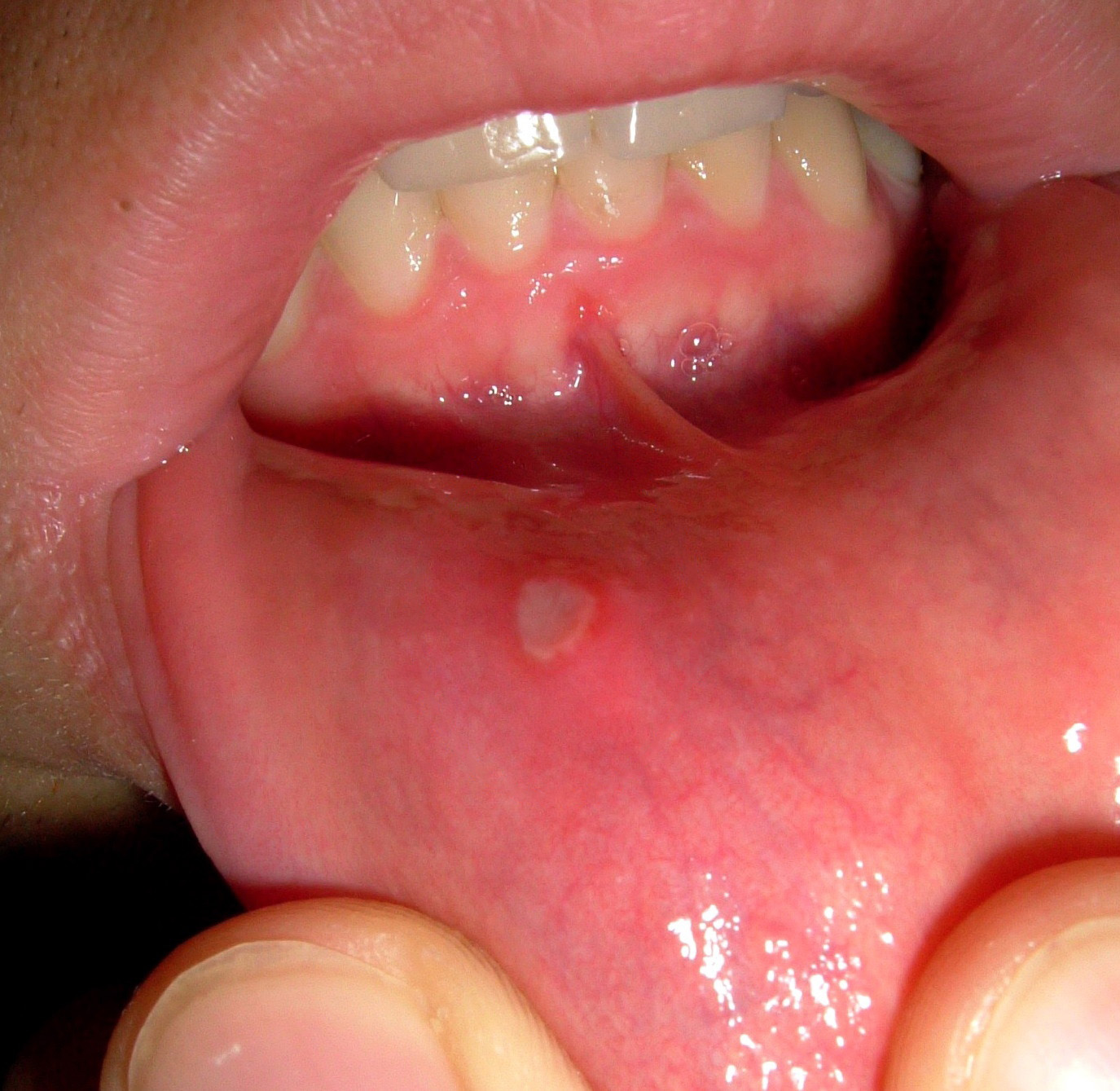
𝐔𝐋𝐂𝐄𝐑𝐒, 𝐑𝐄𝐃 𝐒𝐏𝐎𝐓𝐒, 𝐀𝐍𝐃 𝐖𝐇𝐈𝐓𝐄 𝐏𝐀𝐓𝐂𝐇𝐄𝐒
Mouth ulcers are usually small painful areas inside the mouth. Some people experience mouth ulcers repeatedly , which can cause burning sensation, difficulty in eating and subsequently poor health. Our dental team of Oral diagnostician and Physician help you in management of these kinds of mouth, cheek and tongue soreness. Mouth ulcers and the presence of red or white areas in the mouth can be indicative of various conditions. Here are some common causes of these symptoms: 1. Canker sores: These are small, painful ulcers that can develop on the soft tissues inside the mouth. They are often white or yellow and have a red border. Canker sores are not contagious and can be triggered by stress, certain foods, or minor injuries in the mouth. 2. Oral thrush: This is a fungal infection caused by an overgrowth of Candida yeast in the mouth. It can appear as creamy white lesions on the tongue, inner cheeks, and can be indicative of underlying health condition. 3. Leukoplakia: This condition causes thick, white patches to form on the gums, the insides of the cheeks, or the bottom of the mouth. While usually harmless, it can sometimes be a precursor to cancer, especially if caused by tobacco use. 4. Erythroplakia: This refers to red patches in the mouth that can signal a more serious condition, such as oral cancer. Red patches that do not resolve on their own within a couple of weeks should be evaluated by a dentist or physician. 5. Hand, foot, and mouth disease: This is a viral infection common in young children that can cause red spots or sores to develop in the mouth and on the hands and feet. 【FAQS】 1. Are oral mucosal lesions treatable? Ans: Yes, many oral mucosal lesions can be treated effectively through various approaches, including medication, oral hygiene improvements, and lifestyle modifications. However, the treatment and management depends on the specific type and cause of the lesion. 2. Where can these changes be seen? Ans: The ulcers, red and white areas are abnormal changes that occur in the lining of the mouth, including the inside of cheeks, lips, gums, tongue, below tongue and roof of mouth. It's essential to consult a dentist or a healthcare professional for a proper diagnosis if you notice any unusual changes or persistent symptoms in your mouth. Timely intervention can help identify any underlying issues and ensure appropriate treatment. Schedule your consultation today for comprehensive oral health assessment and personalized care. Call 𝟗𝟎𝟒𝟑𝟏𝟗𝟑𝟎𝟐𝟏 to help you get rid of the ulcer pain.

𝐅𝐔𝐋𝐋 𝐌𝐎𝐔𝐓𝐇 𝐑𝐄𝐇𝐀𝐁𝐈𝐋𝐈𝐓𝐀𝐓𝐈𝐎𝐍 𝐅𝐎𝐑 𝐋𝐀𝐒𝐓𝐈𝐍𝐆 𝐂𝐎𝐍𝐅𝐈𝐃𝐄𝐍𝐂𝐄
Full mouth rehabilitation, also known as full mouth reconstruction, is a comprehensive dental treatment that aims to address extensive dental issues affecting the entire mouth. This tailored approach involves a combination of restorative procedures, such as crowns, bridges, dental implants, and veneers, among others, to restore both the function and aesthetics of the entire mouth. Through meticulous planning and personalized treatment, our full mouth rehabilitation services aim to renew your oral health, enhance your smile, and improve your overall quality of life. Our expert team is dedicated to providing you with a comfortable and effective treatment journey, ensuring a confident and radiant smile that lasts a lifetime. Indications for full mouth rehabilitation may include: 1.Severe tooth wear 2. Multiple missing teeth 3. Extensive tooth decay 4. Misaligned bite or jaw issues 5. Chronic jaw pain or headaches related to dental problems 6. Significant damage due to trauma or injury 7. Widespread gum disease or periodontal issues Procedures involved in full mouth rehabilitation typically encompass: Comprehensive dental examinations and imaging 1. Treatment planning tailored to the patient's specific needs 2. Restorative procedures such as dental crowns, bridges, and implants 3. Periodontal therapies to address gum disease and ensure a healthy foundation 4. Orthodontic interventions to correct misalignments and bite issues 5. Endodontic treatments for damaged or infected tooth pulp 6. Cosmetic procedures like veneers or teeth whitening for improved aesthetics 7. Prosthodontic solutions such as dentures or partials for extensive tooth loss Regular follow-up appointments and maintenance to ensure long-term success and oral health. 【FAQS】 1. Are there any risks associated with full mouth rehabilitation? Ans: While full mouth rehabilitation is generally safe, some risks may include temporary discomfort, post-treatment sensitivity, or the need for additional adjustments or revisions during the process. 2. How long does full mouth rehabilitation take to complete? Ans: The duration of full mouth rehabilitation varies depending on the complexity of the case and the specific treatments involved. It can range from several months to over a year, depending on individual treatment plans. If you have any further questions or concerns, please do not hesitate to reach out to Sparkle Dental Clinic, at 𝟗𝟎𝟒𝟑𝟏𝟗𝟑𝟎𝟐𝟏. Our prosthodontist, periodontist and endodontist team are more than happy to assist you with any inquiries you may have.
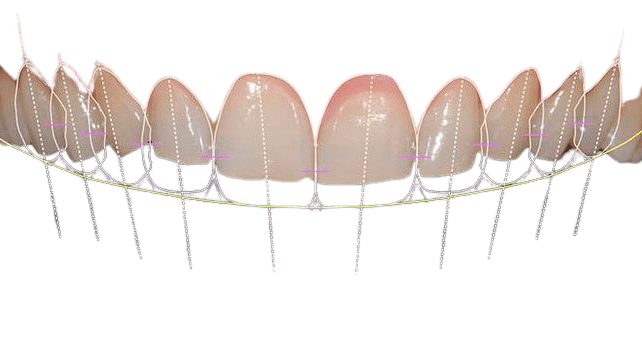
𝟑𝐃 𝐒𝐌𝐈𝐋𝐄 𝐃𝐄𝐒𝐈𝐆𝐍𝐈𝐍𝐆 - 𝐃𝐈𝐆𝐈𝐓𝐀𝐋 𝐒𝐌𝐈𝐋𝐄 𝐃𝐄𝐒𝐈𝐆𝐍𝐈𝐍𝐆
Get Your Dream Smile with 3D Smile Designing Experience the latest in dental technology with 3D Smile Designing. This innovative digital tool helps dentists create personalized treatment plans for your perfect smile. See the possibilities and make informed choices for a confident, stunning smile transformation. Discover the future of dental care with 3D Smile Designing today. During your initial visit, all tooth and related digital records are captured to design your new smile. We'll take a series of photographs and short videos, focusing not just on your teeth but also on your unique expressions and personality. Understanding how your mouth moves when you speak or laugh is key to achieving a natural, harmonious result. 【FAQS】 1. Who is a suitable candidate for smile designing? Ans: Individuals with concerns such as discolored, misaligned, or unevenly shaped teeth are often suitable candidates for smile designing. 2. Are the results of smile designing permanent? Ans: While the results of smile designing are long-lasting, they may require maintenance over time. Proper oral hygiene practices and regular dental visits can help ensure the longevity of the results. 3. What are some common treatments included in smile designing? Ans: Smile designing treatments can include teeth whitening, veneers, dental crowns, orthodontics, and gum reshaping, among others, tailored to the specific needs and goals of the individual. Our goal is to create a smile that complements your facial features seamlessly. Our modern dentistry concepts aims to ensure that your new smile appears natural and enhances your overall appearance. Sounds interesting and want to know more. Call 𝟗𝟎𝟒𝟑𝟏𝟗𝟑𝟎𝟐𝟏 for a Digital Smile Design consultation at a nominal cost.
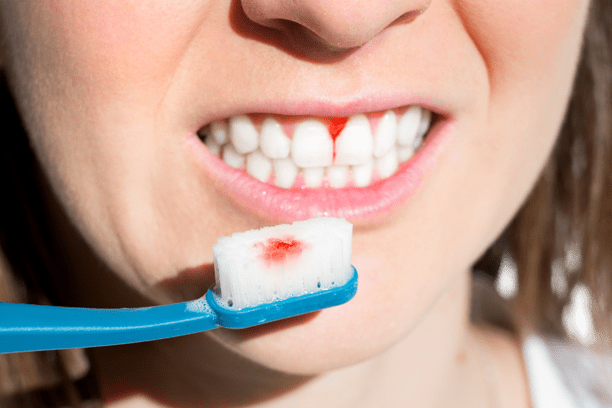
𝐒𝐂𝐀𝐋𝐈𝐍𝐆 𝐀𝐍𝐃 𝐏𝐎𝐋𝐈𝐒𝐇𝐈𝐍𝐆
Scaling and polishing is like a deep cleaning for your teeth. It helps get rid of the deposits and stains which are stuck to your teeth feel. Dentists use special tools to clean your teeth thoroughly and make sure your gums stay healthy. It's a simple way to keep your teeth strong and bright. It is important to treat gum disease to prevent loosening and loss of your teeth Do I need this dental procedure? Our dentist and periodontist may suggest this extremely common procedure if they notice 1. Gum disease: Build up of scales, plaque and tartar that will cause onset and progression of gum disease, 2.. Red swollen gums 3.. Bleeding while brushing 4. Stains 5. Bad Breath Why will you need scaling? Scaling is an essential dental procedure for maintaining good oral health. Here's why you should consider having scaling done: 1. Healthy Gums: It prevents gum problems by removing the bad stuff that can make your gums sore and unhealthy. 2. Fresh Breath: It helps your breath stay fresh by getting rid of the yucky stuff that can make your breath smell not so great. 3. Brighter Smile: It can make your teeth look brighter by cleaning off the stuff that makes them look dull or yellow. 4. Strong Teeth: It helps you keep your teeth strong by stopping any problems before they become serious and affect your teeth. 5. Better Health: Taking care of your teeth can also help keep your body healthy, preventing problems like heart disease and diabetes 6. Pregnancy: Ensuring proper oral hygiene for your mouth, teeth, and gums throughout your pregnancy can contribute to a positive pregnancy experience and the well-being of your baby What Happens During the Procedure 1. During the scaling procedure, we use special tools to carefully remove the plaque and tartar that have built up on your teeth over time. 2. We pay special attention to the areas around your gums, ensuring that your teeth and gums are thoroughly clean. 3. The procedure is generally comfortable, and the dental team works to ensure you feel at ease throughout. After scaling, if necessary we may polish your teeth. 【FAQS】 1. Will my gums bleed during scaling? Ans: It's common to experience minor bleeding during scaling, especially if your gums are inflamed due . However, the dental professional will ensure that the bleeding is minimized and will provide post-procedural instructions to manage any discomfort. 2. How often should I get scaling done? Ans: It is generally recommended to get scaling done every six months as part of your regular dental check-ups and cleanings. However, the frequency may vary based on your specific oral health needs 3. I have heard scaling makes teeth weak is that true? Ans: No, scaling does not weaken the teeth. In fact, it helps strengthen them by removing the plaque and tartar that can contribute to decay and gum disease. Regular scaling is an important part of maintaining good oral health and keeping your teeth strong. Scaling is a quick and effective way to maintain excellent oral health and keep your smile sparkling. Call 𝟗𝟎𝟒𝟑𝟏𝟗𝟑𝟎𝟐𝟏 to schedule your way forward to good health.

𝐄𝐌𝐄𝐑𝐆𝐄𝐍𝐂𝐘 𝐃𝐄𝐍𝐓𝐀𝐋 𝐂𝐀𝐑𝐄
We know that dental problems can happen suddenly and can be really painful. That's why at Sparkle Dental Clinic, we're here to help you right away with any dental emergencies you might have. Need Emergency Dental Care? If you're experiencing teeth pain or have had an injury, give us a call immediately. We'll do our best to schedule an emergency visit for you . Our team is dedicated to providing the right treatment to relieve your pain, restore your teeth, and make sure you're pain-free. Wondering if you need to see a dentist urgently? Contact us immediately if you have: A severe toothache A tooth which has come out from its place due to injury Excessive bleeding from a mouth injury Broken or chipped teeth Lost filling or crown Painful swelling with pus Loose teeth affecting your eating A bracket which has loosened or a poking wire from braces During your visit, our dentists will carefully examine your condition and provide prompt treatment to ensure you're comfortable and pain-free. Urgent Dental Concerns? This dental clinic near you will help you. Contact Sparkle Dental Care Now for Immediate Assistance! Call 𝟗𝟎𝟒𝟑𝟏𝟗𝟑𝟎𝟐𝟏